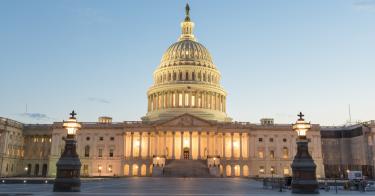The federal tax refunds issued so far in 2019 are somewhat lower than last year — and it’s creating some confusion.
Liberal lawmakers have even cited the smaller refunds as evidence that the 2017 tax cuts were actually a “middle-class tax hike.” That’s nonsense.
A refund is what you get back if you have overpaid taxes throughout the year. Your tax cut is how much less money you have to give Uncle Sam this year. The two are not connected.
The confusion stems from tax withholding — the process whereby Washington requires your employer to collect and send in your taxes before you get your paycheck.
When the tax cuts took effect a year ago, your employer adjusted by sending a little less to the feds on each paycheck. It happened automatically, and a lot of people didn’t even notice.
Withholding is rarely perfect, so your end-of-year refund or tax payment is simply a last-minute adjustment. Your adjustment this year might be less or more than last year’s, but chances are you are one of the 90 percent of folks who benefited from the tax cuts.
A typical family of four got a $2,917 tax cut, and the average tax cut across all households is about $1,400.
The recent confusion about what lower refunds mean is an unfortunate — albeit not unintended — consequence of the withholding system. Withholding “takes the sting out of paying taxes” by masking how much you’re actually paying. Instead of you sitting down and writing one big check to pay your tax bill, your employer does it for you in dribs and drabs — and you never see the money before it goes out.
And Americans pay quite a lot. For someone earning $50,000, an end-of-year check for federal, state and local taxes would be about $12,000.
The IRS should stop conscripting employers as tax collectors and let Americans pay their own taxes.
That’s how they do it in Switzerland. Once a year, Swiss workers write a single check to the government for their full tax bill. They know exactly how much their government costs them.
A tax system that eschews withholding has helped the Swiss usher in one of the most admirable budgeting systems in the world. They rely on fiscal rules that are enforced by spending and tax limits. By pegging federal spending and debt to GDP, the Swiss government rides the tide of prevailing economic cycles — spending more when the economy is down and less when growth is strong.
The American system has the opposite effect. Most Americans don’t realize how much they pay in taxes. Proponents of this system argue that withholding is the only way for the government to raise enough tax revenue without people crying foul.
They are exactly right. And it’s a shame.
Receiving refunds at the end of the year, instead of having to write a check, has the pernicious effect of deluding many taxpayers into thinking that the government is paying them rather than the other way around.
And this comforting delusion makes people less engaged in the democratic process, enabling taxes and spending to get out of control.
“I don’t want to think about how much of my money they take,” a friend recently said to me. “Just have my employer send it in. I’d be so mad if I had to write that check!”
Frankly, it is time for us to get mad. Or at least have an honest conversation about how high taxes actually are and how much higher they will have to be in the future, when we can no longer keep piling up $1 trillion in new debt each year.
It’s time to simplify the taxpaying system and make it more transparent.
Our employers should not have to collect our taxes. Americans should see how much government is costing them and write the checks themselves.
This piece originally appeared in The Washington Times



